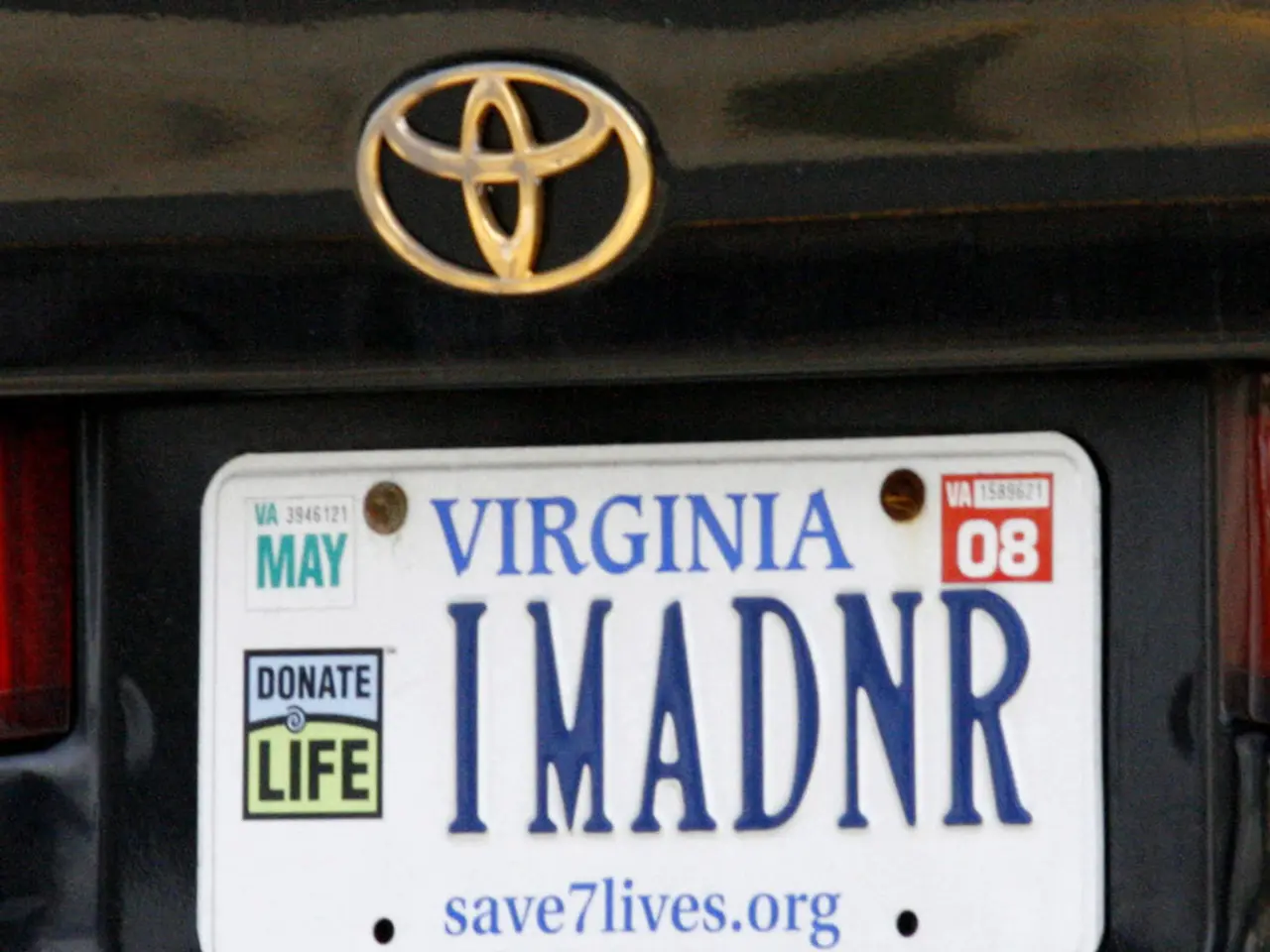Rural areas in Brandenburg pushing for unique vehicle identification tags
German Cities Push for Unique License Plates to Boost Regional Identity
A growing number of mayors across Germany are advocating for their cities to be granted unique license plates as a means to strengthen regional identity and promote local marketing. The campaign, which has gained momentum in recent months, involves mayors from several federal states, including Baden-Württemberg, Bavaria, North Rhine-Westphalia, and Hesse.
Currently, German license plates start with an abbreviation (1–3 letters) indicating the city or district where the vehicle is registered, such as "B" for Berlin or "HH" for Hamburg. However, allowing individual cities to have unique license plate codes or designs beyond the existing system would require several changes at the federal and state levels.
Firstly, the federal legislation governing vehicle registration (the Fahrzeug-Zulassungsverordnung) and relevant state regulations would need to be amended to permit new or additional city-specific codes or designs. Local registration offices would also require updated guidelines and systems to assign and manage these new license plate variants.
Physical license plates must comply with national standards for size, font, reflective properties, and security features. Establishing new city-specific designs might require coordination with the federal transport authority for approval. Clear rules would be necessary to determine which cities qualify for their own plates, how combinations are assigned, and how to avoid conflicts with existing codes.
Implementation would require funding and logistics planning for new plate production, distribution, and potential public awareness campaigns emphasizing regional identity benefits. Ralf Bochert, professor of economics and destination management at Heilbronn University, has suggested that 320 cities in Germany could receive their own vehicle registration codes if the changes are implemented.
In Baden-Württemberg alone, cities such as Weingarten (Ravensburg district), Albstadt (Zollernalbkreis), Bad Krozingen (Breisgau-Hochschwarzwald district), Ellwangen (Ostalbkreis), Ettlingen (Karlsruhe district), Fellbach (Rems-Murr district), Geislingen an der Steige (Göppingen district), Giengen an der Brenz (Heidenheim district), Herrenberg (Böblingen district), Kirchheim unter Teck (Esslingen district), Leutkirch (Ravensburg district), Nagold (Calw district), Rheinstetten (Karlsruhe district), Schorndorf, Winnenden (both in the Rems-Murr district), Schramberg (Rottweil district), and Waldkirch (Emmendingen district) have expressed interest in obtaining their own license plates.
For a state to implement city-specific license plates, it must apply to the Federal Ministry of Transport for a change to the vehicle registration ordinance, which then needs to be passed by the Bundesrat. The mayors involved in the campaign have sent joint letters to the responsible ministries in their respective states to advocate for their cause.
The mayors aim to use their own license plates to strengthen regional identity and boost local marketing without incurring additional costs. The campaign for city-specific license plates is not a nationwide movement, as some cities in Germany do not currently have their own plates. However, the movement is gaining traction, with more than 70 mayors from several federal states involved in the campaign.
Sources: 1. Deutsche Welle 2. Heilbronn University
- The campaign for unique license plates in selected cities across Germany aims to boost regional identity and promote local marketing, as articulated by a growing number of mayors.
- To achieve this, the federal and state legislation governing vehicle registration may need amendments, along with updated registration office guidelines and systems for managing the new license plate variants.







